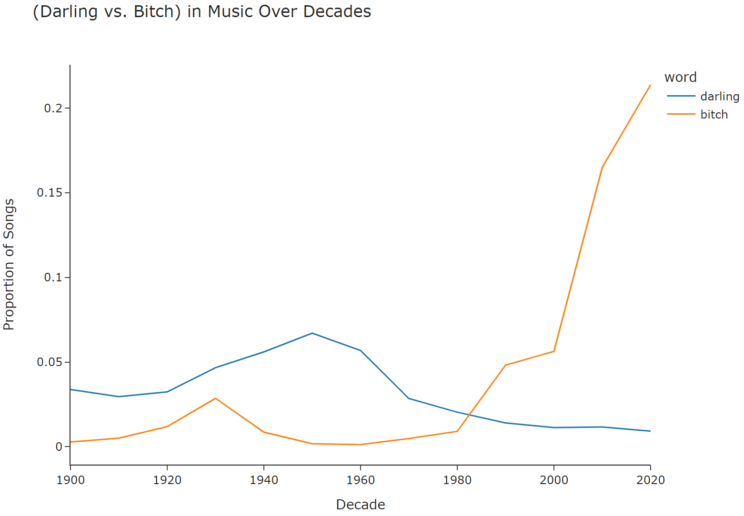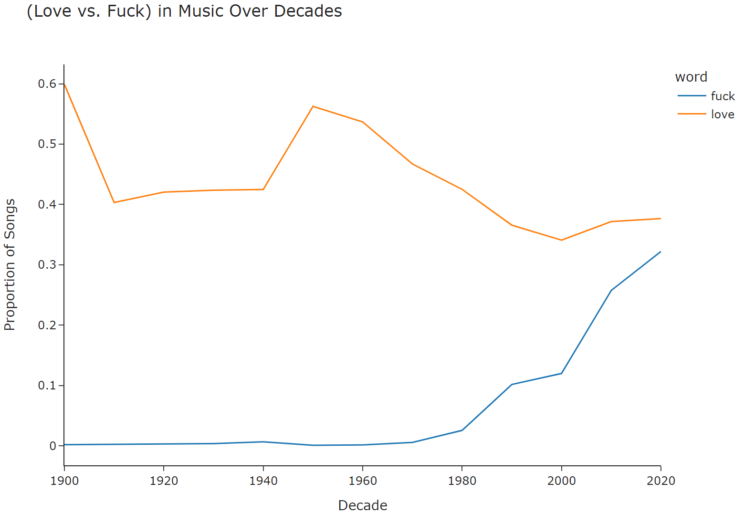In 1935, philosopher Walter Benjamin explored the transformative dynamics of art in his seminal essay, “The Work of Art in the Age of Mechanical Reproduction.” Central to his argue is the notion of ‘aura‘—an intrinsic essence tethering artworks to their unique time and place of origin. While a classical fresco or symphony is imbued with this aura, the advent of technology and its capacity for mass reproduction has eroded this singular essence. I take Benjamin’s insight and apply it to the mechanical reproduction of music; its ‘aura’ is fading!
Modern music, streaming across digital platforms, sadly mirrors the fading ‘aura’ Benjamin described, seen in the perceived lyrical dilution and increased use of explicit content. In this post, I examine over 3.5 million English-language songs from the 1900s onward to demonstrate the fading ‘aura’ of music, evident in the deterioration of lyrics, particularly the rise in profanity and misogyny.
Though Benjamin’s subject was visual arts, the implications of his theory find echoes in the contemporary music scene. It is because the relentless pursuit of chart dominance propels the creation of music tailored for quick consumption, occasionally sidelining the depth and originality of lyrics. In the bid to secure worldwide acclaim, artists might opt for more generic and easily digestible lyrics deteriorating their poetic quality. Such mass appeal can lead to clichéd themes or even amplified profanity, mirroring Benjamin’s observations of art’s transformation for widespread consumption. In an age where new songs emerge incessantly, standing out is daunting, leading artists to employ provocative themes as a beacon to fleeting listeners—a trend aligned with Benjamin’s concerns of art’s potential distortion for pure impact.
Here are a few exemplars:

The graph above depicts a departure from more traditional and gentler expressions of affection or endearment (i.e., darling) to derogatory forms (i.e., bitch) especially after 1980s where contemporary mass music production took over. For Benjamin, this trend is a telltale sign of how an aesthetic field has been overrun by those who do not value aestheics!

Similarly, the word ‘fuck’ caught up with ‘love’. While ‘fucks’ are easy to get in the era of right swipe dating, ‘love’ needs be nurtured. Although ‘love’ has remained more or less a stable theme in lyrics, ‘fuck’ is catching up perhaps because the lyrics are mirroring the contemporary understanding of intimacy, which Žižek calls, “Love without the fall“.
More analysis on its way. Stay tuned!